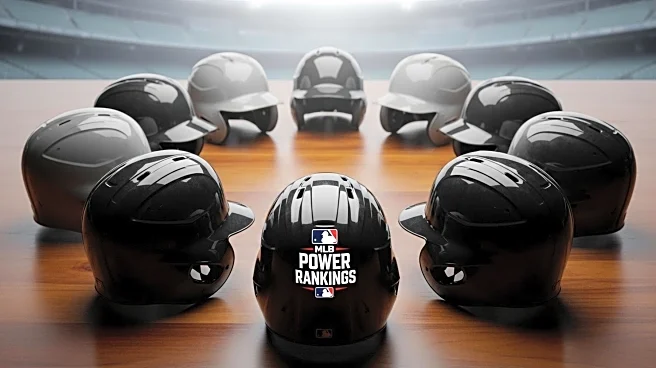What is the story about?
What's Happening?
The MLB playoff race is heating up with eight teams vying for the World Series title. The contenders include the Brewers, Mariners, Dodgers, Blue Jays, Tigers, Phillies, Yankees, and Cubs. Each team brings unique strengths and weaknesses to the table, making the race highly competitive. The Dodgers aim to become the first repeat champions since 2000, while teams like the Brewers and Mariners seek their first-ever title. The rankings reflect the unpredictable nature of playoff baseball, where regular-season records are set aside.
Why It's Important?
The wide-open nature of the World Series race underscores the competitive balance in MLB. With no clear favorite, the playoffs promise exciting matchups and potential upsets. This scenario is beneficial for fans and the league, as it increases engagement and viewership. Teams with strong pitching and offensive capabilities, like the Phillies and Dodgers, are poised to make deep runs, but the unpredictability of the playoffs means any team could emerge victorious. The outcome will have implications for team strategies and player performances.
What's Next?
As the divisional round approaches, teams will focus on refining their strategies and addressing any weaknesses. The matchups will test the depth and resilience of each roster, with pitching rotations and bullpen management playing crucial roles. Fans can expect intense games as teams battle for a spot in the championship series. Analysts will be closely monitoring player performances and team dynamics, predicting potential outcomes and surprises.
Beyond the Headlines
The playoff race highlights the evolving nature of MLB, where parity among teams has increased. This shift reflects changes in team management, player development, and strategic approaches. The emphasis on analytics and data-driven decisions has contributed to more balanced competition, making the league more unpredictable and exciting.
















